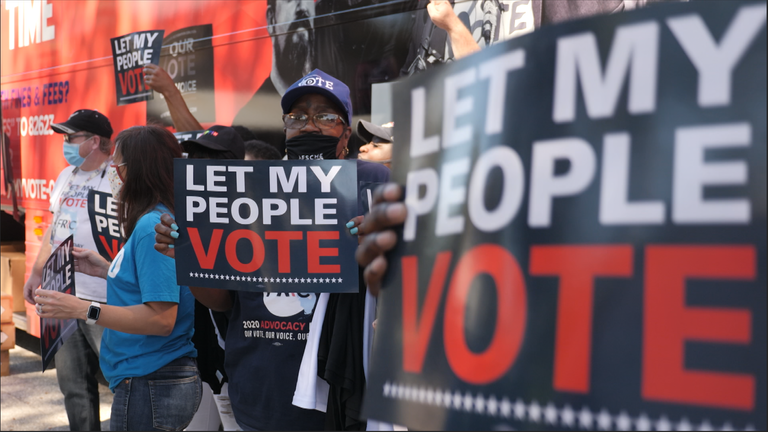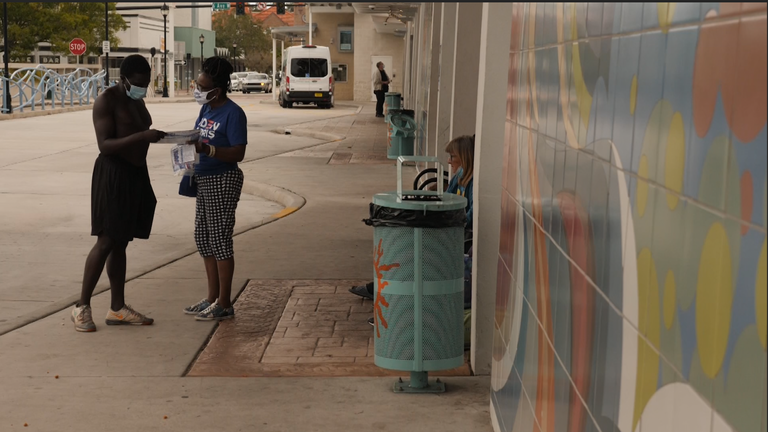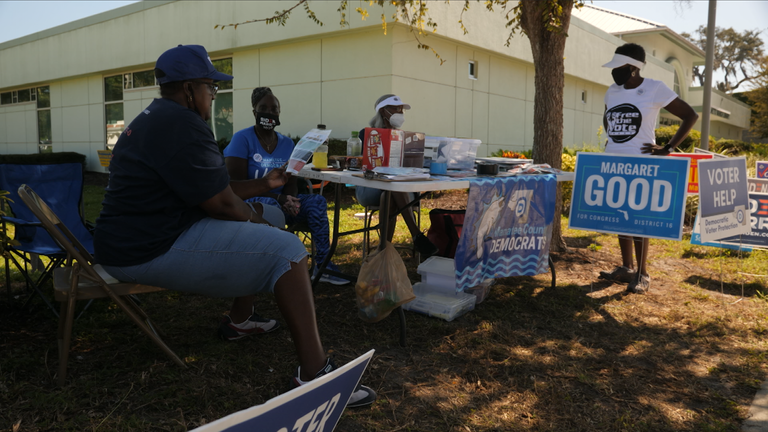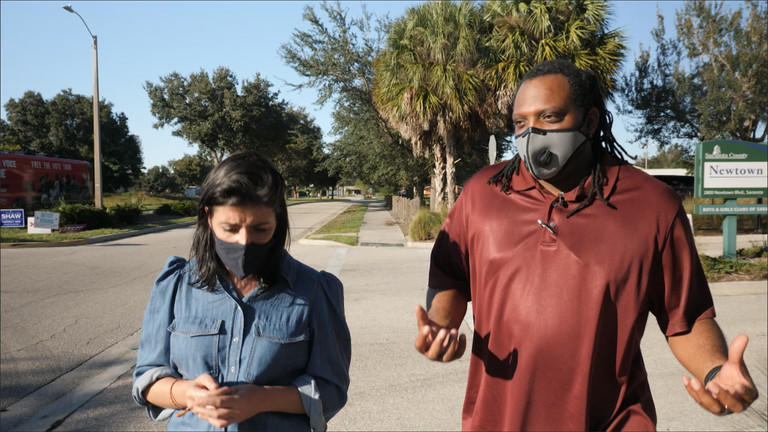Outside a polling station in Palmetto, Florida, 48-year-old Mike Horne is making a call to arms.
“All you former felons come out and vote,” he says, gesturing to his viewers on social media.
He isn’t a politician or an activist, he’s a convicted criminal.
Drugs charges led to a twenty year stint in a jail in Florida.
Not only did he lose his freedom, but also his right to vote.
But in 2018, a referendum in the state restored voting rights to ex-offenders.
This is the first year Mike can cast his ballot in a presidential election.
“It’s like a new life, it really means a lot to me,” he says.
“I’m a convicted felon and it took a very long time for me to get my rights back.”
More than a million former offenders got the right to vote under the new rules in 2018, but a year later the Republican-controlled Florida legislature passed the law requiring all fines and fees connected to the sentence to be paid off first.
Voting and civil rights groups sued the state’s Republican governor and election officials over the requirement but in September an appeals court upheld the decision.
Campaigners say it effectively means at least a quarter of a million people lost the opportunity to cast their ballots all over again.
“We know that there are hundreds of thousands who are now eligible to vote and can vote and that’s something we are here celebrating but there’s hundreds of thousands of people who cannot vote because they owe financial obligations. We will not sleep until all 1.4million people impacted have access to the ballot box and can be heard in their communities,” says Neil Volz, Deputy Director of Florida Right Restoration Coalition (FRRC).
The FRRC has raised more than seven million dollars, including a donation from basketball star LeBron James, to help pay off the fines.
Activists have also been holding marches and bus tours to try to raise awareness and get people to the polls.
70-year-old volunteer Linda has been going door to door searching shelters and soup kitchens for former felons who are eligible to vote.
Florida’s black and poor communities have been hardest hit by the change in rules.
“Are you a convicted felon?” she asks a 25-year-old African America man called Thomas, who’s been sleeping rough in the bus station
“Yes, ma’am,” he replies.
She tells him that he still has time to get to the polls but he has given up.
He says he likes Donald Trump but he believes society only listens to people with power and money.
“Do you care that you’ve got your vote back?” I ask.
“I feel like at the end of the day our vote doesn’t even matter,” he replies.
His message is echoed at the local drop-in centre by another former inmate called James.
He explains he’s never voted and he doesn’t see the point in opting into a system which doesn’t represent or relate to black people.
Other former offenders tell us they’ve struggled to find work after coming out of jail so can’t afford to pay off their debts to restore their rights.
“They hit me with thirty eight hundred dollars in court costs,” one homeless man says.
Republicans who support the law say the fines are part of the sentence so must be paid before voting rights are restored.
But the votes of more than one million former offenders could dramatically sway the result here and FRRC chapter leader, Demetrius K Jifunza believes the decision’s politically motivated:
“For the state of Florida, I would definitely say yes, (there’s a element of voter suppression) because it’s been said over time individuals, especially African Americans, are going to vote Democrat if they get their voting rights back.”
Despite the efforts, time has run out; campaigners say at least three quarters of a million of Florida’s former felons will miss out on this election.





